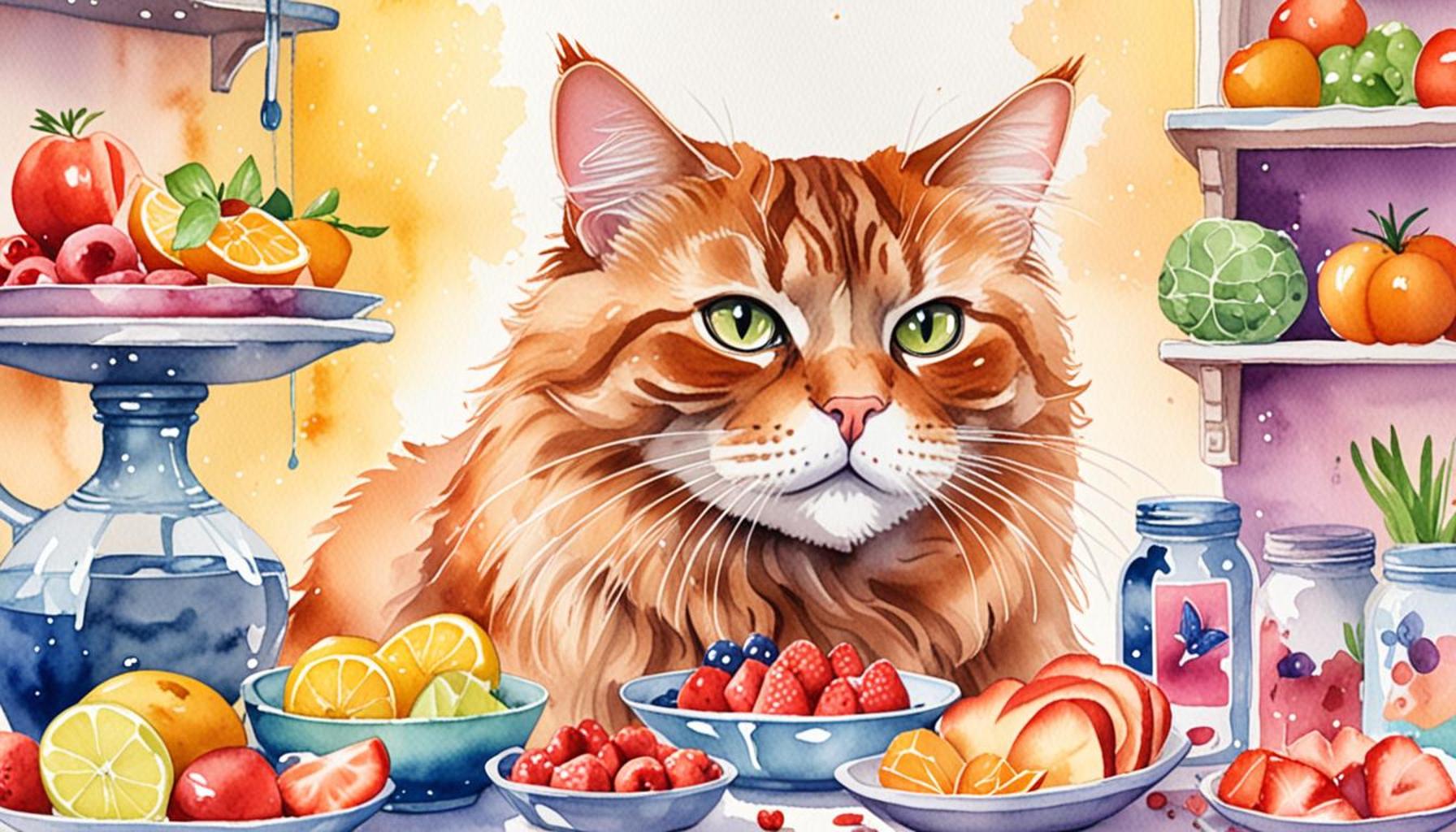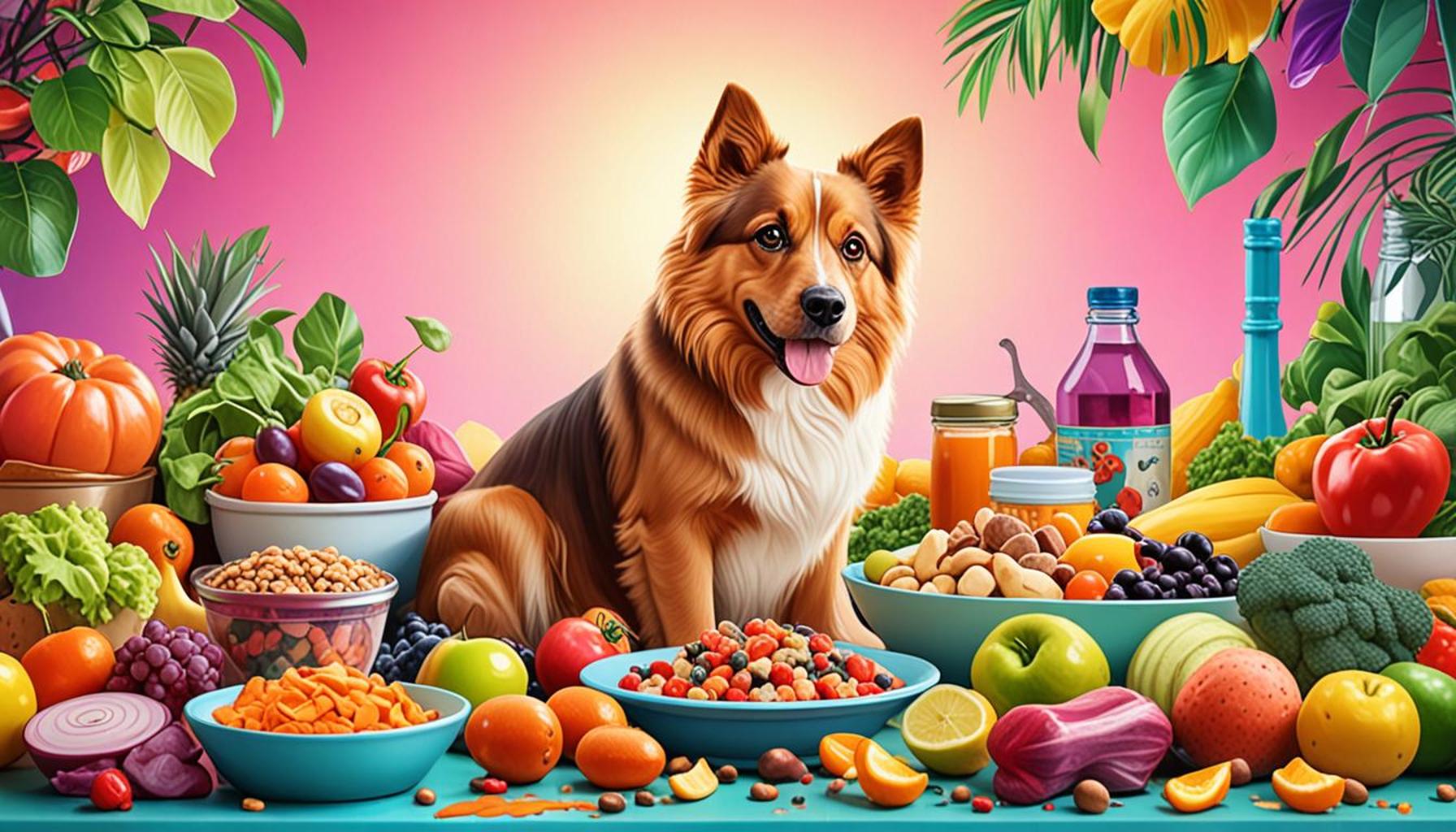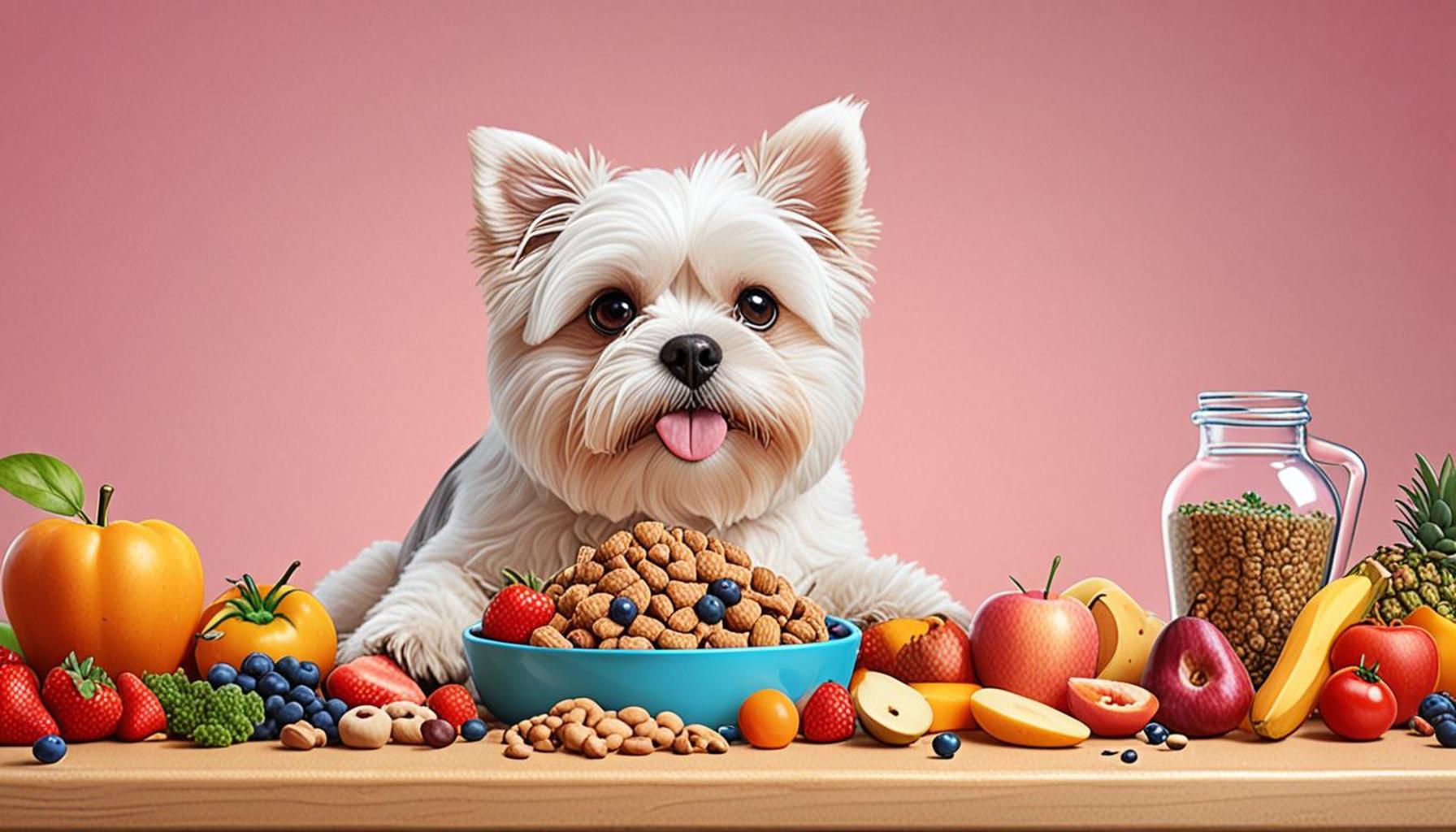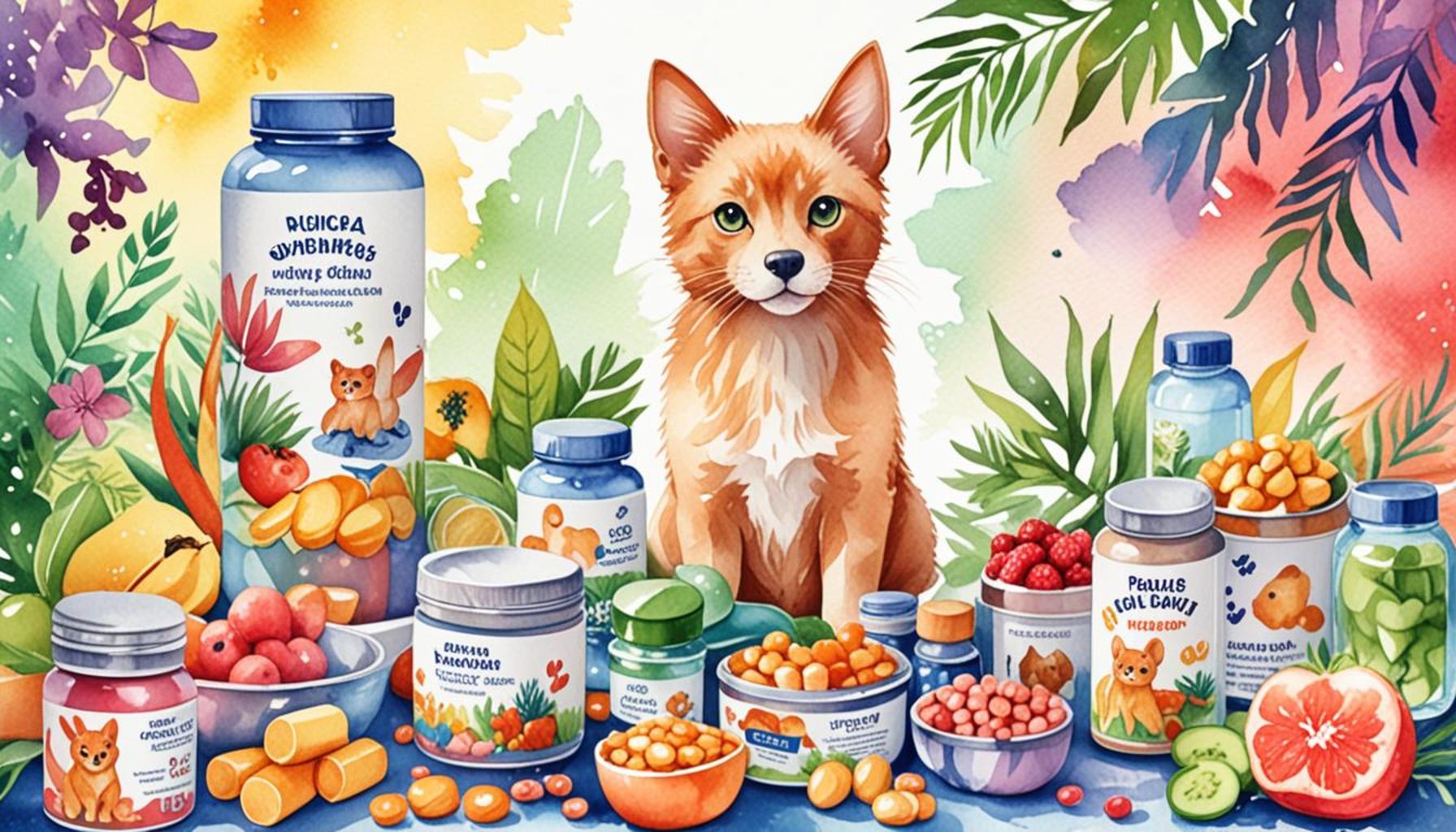Understanding Nutritional Needs for Senior Cats

The Evolving Nutritional Landscape for Senior Cats
As felines grow older, around the age of seven and above, their nutritional needs evolve significantly. This transformation is pivotal to maintaining their health and vitality in the later stages of life. Understanding the specific dietary requirements of senior cats is essential for any pet owner who wishes to ensure their furry companion thrives well into their golden years. This article delves deeper into the various aspects that affect the nutritional regimen of aging cats.
Key Factors Influencing Senior Cat Nutrition
- Reduced Metabolism: A notable aspect of aging in cats is a reduced metabolic rate. As a result, older cats require a diet that is not only lower in calories but also rich in essential nutrients to maintain their energy levels. For instance, a typical active adult cat may require around 20-30 calories per pound of body weight, while a senior cat might only need about 15-20 calories per pound. This means that senior cat owners should prioritize quality over quantity, focusing on foods that provide high protein content while cutting back on unnecessary fillers.
- Dental Health: Dental issues are increasingly common among aging cats, with conditions such as periodontal disease affecting their ability to chew. Consequently, it becomes necessary to introduce softer food options, including wet cat food or specially formulated kibble designed for dental care. Products with a rough texture can help minimize plaque build-up while being easier on sensitive teeth and gums. Additionally, dental treats formulated to promote oral health can be a valuable addition to the diet of a senior cat.
- Joint Support: Mobility can decline as cats grow older, making joint support an essential consideration in senior nutrition. Nutrients such as glucosamine and omega-3 fatty acids play a critical role in maintaining healthy cartilage and reducing inflammation. For example, including fish oil supplements or certain prescription diets can enhance a senior cat’s overall joint function, making it easier for them to engage in daily activities.
The Importance of Hydration
Adequate hydration cannot be overstated, particularly for senior cats who are more susceptible to kidney issues and urinary tract problems. Many cats are not naturally drinkers, so it is vital to provide moisture-rich diets that can help maintain optimal hydration levels. Wet food can be an excellent choice, as it contains a higher water content compared to dry kibble. Additionally, ensuring constant access to fresh, clean water is crucial—consider using a water fountain, as many cats are more inclined to drink from flowing water, which can encourage better hydration.
Individual Considerations
Every cat is unique, and their preferences can significantly influence their dietary choices. Some senior cats may exhibit increased sensitivities or develop food allergies over time. When introducing new foods or making changes to their diet, it is essential to do so gradually to avoid gastrointestinal upset. Observing their reactions and being mindful of their likes and dislikes is paramount in creating a tailored feeding plan.
With the right knowledge and tools, owners can effectively optimize their senior cat’s nutrition, enhancing their quality of life and extending their years of companionship. By diving deeper into the multifaceted world of feline nutrition, cat owners can make informed choices that contribute to a long, healthy, and vibrant life for their beloved pets.
DISCOVER MORE: Click here to learn effective training techniques

Essential Nutrients for Senior Felines
As cats age, their dietary requirements become increasingly refined, particularly when it comes to essential nutrients. Understanding these needs can make the difference between a vibrant, active life and a struggle with health issues. When assessing the nutritional needs for senior cats, several key nutrients warrant a closer look.
High-Quality Protein
Senior cats need a diet that emphasizes high-quality protein. As pets mature, muscle mass naturally declines, leading to the necessity for protein to maintain muscle tissue and support overall health. Unlike younger cats who may have a higher tolerance for carbohydrates, senior felines flourish on diets rich in animal-based proteins. Ideally, protein should make up at least 30-40% of their daily caloric intake. This nutrient is crucial for energy, and it aids in tissue repair and regeneration, a process that becomes increasingly important as cats age.
Balanced Fat Content
While high-quality protein should take center stage in a senior cat’s diet, fats are equally essential. Healthy fats provide the necessary energy supplement while helping improve the absorption of fat-soluble vitamins like A, D, E, and K. However, it’s vital to be cautious about the quantity as excess fat can contribute to obesity—a common issue in older cats. Instead, owners should focus on integrating omega-3 and omega-6 fatty acids into their cat’s diet. These fats can be found in fish oil and certain meat sources and have anti-inflammatory properties that can be especially beneficial for joint health.
Vitamins and Minerals
Senior cats also have unique needs regarding vitamins and minerals. For instance, antioxidants such as vitamin C and E help combat oxidative stress that can lead to conditions like arthritis and cognitive dysfunction. Additionally, B vitamins play a prominent role in energy production and maintaining a healthy coat and skin. Furthermore, minerals such as calcium and phosphorous must be part of their diet for bone health and metabolic functions. When choosing commercially available cat food, ensure that it meets the Association of American Feed Control Officials (AAFCO) guidelines for complete and balanced nutrition specific to senior pets.
Special Dietary Considerations
Aging cats often experience health challenges, making it necessary to tailor their diets further. Various ingredients can help manage specific conditions:
- Fiber: Incorporating fiber from sources like pumpkin or beet pulp can aid digestion and help manage weight.
- Low Sodium: Reducing sodium content can be essential for those suffering from hypertension or kidney problems.
- Limited Carbohydrates: Felines are obligate carnivores; thus, a lower carbohydrate diet is generally more conducive to their overall well-being.
Assessing the nutritional needs of a senior cat is a multifaceted endeavor, requiring attention to essential proteins, fats, vitamins, and minerals tailored to the aging process. With an informed diet plan, pet owners can facilitate a healthier, happier life for their beloved feline companions, ensuring they enjoy their twilight years with grace.
| Nutritional Aspect | Importance |
|---|---|
| High-Quality Protein | Promotes muscle maintenance and overall health in senior cats. |
| Fiber Content | Aids digestion and helps prevent obesity, which is common in older cats. |
| Moisture-Rich Diet | Supports hydration and kidney function, crucial for elderly felines. |
| Essential Fatty Acids | Promotes a healthy coat and skin, while contributing to overall well-being. |
In illuminating the nutritional needs of senior cats, it’s essential to focus on the unique requirements they present. Aging cats often face challenges that require care in their feeding regimen. For instance, incorporating high-quality protein into their diet not only helps maintain their muscle mass but also provides the energy needed for their daily activities. As they age, cats may become less active, so adopting a diet rich in protein becomes vital. Additionally, a diet that includes adequate fiber content not only aids in digestion but also helps combat weight gain, which can be a concern in less mobile senior cats. Furthermore, offering a moisture-rich diet, such as wet food, can significantly support their hydration levels and kidney function. This becomes increasingly crucial as they age, given their susceptibility to dehydration. Finally, it’s important to ensure they receive enough essential fatty acids. These nutrients can have excellent benefits for their skin and coat health, while also promoting an overall sense of well-being. Emphasizing these factors will not only enhance the quality of life for senior cats but can also promote longevity and vitality in their golden years.
DIVE DEEPER: Click here to discover more techniques
Hydration and Digestive Health
In addition to balanced nutrients, hydration plays a critical role in the diet of senior cats. As cats age, they often become less inclined to drink enough water, which can lead to dehydration and urinary tract issues. Encouraging proper hydration is paramount to maintaining kidney function and overall health. One effective way to ensure adequate water intake is by incorporating wet food into their meals. Canned cat food typically contains 70-80% moisture, which provides a significant boost to water consumption compared to dry kibble. Additionally, providing fresh water daily and considering pet water fountains can stimulate a cat’s interest in drinking.
The Importance of Dietary Fiber
The digestive health of senior cats often requires special attention, making diets rich in fiber especially beneficial. Fiber aids in promoting healthy digestion, helps regulate blood sugar levels, and contributes to weight management. As most cats age, their gastrointestinal motility may slow down, leading to potential constipation or other digestive issues. Integrating fiber sources like psyllium husk, brown rice, or even vegetables such as green beans can help keep their bowel movements regular. Moreover, fiber can create a sense of fullness, allowing for better calorie control—crucial for preventing obesity in less-active older cats.
Joint and Mobility Support
Maintaining joint health becomes increasingly important for senior felines, as they are often prone to arthritis and mobility challenges. Including ingredients like glucosamine and chondroitin in their diet can provide the necessary support for joint function and comfort. These compounds are found in various supplements and some specially formulated cat foods aimed at older pets. Omega-3 fatty acids, derived from fish oil or flaxseed, also play a vital role in reducing inflammation and supporting joint health. Regular veterinary consultations can help determine the best dietary approach and supplementation for senior cats facing mobility challenges.
Monitoring Weight and Caloric Intake
As pets age, it’s crucial to monitor their weight and caloric intake closely. Senior cats tend to have a slowed metabolism, and an imbalance between caloric intake and energy expenditure can lead to weight gain, which can exacerbate health issues. Pet owners should consult with their veterinarian to define appropriate caloric goals tailored to their cat’s lifestyle, health status, and activity level. Regular weigh-ins at home can help track changes over time, allowing for timely adjustments to their feeding routine.
- Frequent Small Meals: Offering smaller, more frequent meals can help stimulate appetite and provide steady energy levels throughout the day.
- Weight Management Formulas: Many pet food brands offer specific diets designed to manage caloric intake while still providing essential nutrients for older cats.
- Veterinary Guidance: Engage with your veterinarian for personalized feeding recommendations, especially if your cat has specific health conditions like diabetes, kidney disease, or heart issues.
Understanding the complete nutritional picture of senior cats goes beyond just nutrients. It encompasses hydration, digestive health, joint support, and weight management. By taking into account these diverse factors, pet owners can ensure that their feline companions thrive during their golden years, leading a life filled with comfort and joy.
DIVE DEEPER: Click here to learn more about age-specific pet nutrition
Conclusion: Ensuring Optimal Nutrition for Your Senior Cat
In summary, understanding the nutritional needs of senior cats is essential for ensuring their longevity and quality of life. As our feline friends age, their dietary requirements evolve, necessitating adjustments to accommodate their changing health and lifestyle. For instance, increased moisture intake becomes critical, as senior cats often face kidney-related issues. Prioritizing hydration with wet foods not only helps maintain kidney function but also makes eating more enjoyable for cats who may experience dental problems.
Monitoring digestive health is another vital aspect of a senior cat’s dietary protocol. As our pets age, their digestive systems become less efficient. Incorporating a fiber-rich diet can alleviate common issues such as constipation and promote regular bowel movements. Foods like pumpkin, which is high in fiber, or specialized senior diets available at veterinary clinics, can aid in this area. Furthermore, adding probiotics can enhance gut health, which is often crucial as cats face various changes in their gut microbiomes with age.
Supporting joint health cannot be overlooked, as arthritis and mobility issues frequently plague older felines. Including key supplements like glucosamine and chondroitin can provide significant relief and improve mobility, allowing cats to get back to their beloved activities, whether that be climbing a cat tree or chasing a feather toy. Additionally, incorporating omega-3 fatty acids from fish oil can help reduce inflammation in aging joints.
Moreover, weight management is critical to prevent obesity-related issues common in older cats. Extra weight can exacerbate joint and heart problems, leading to a decrease in overall quality of life. Pet owners should consider providing smaller, frequent meals rather than adhering to traditional feeding schedules, as this approach can help maintain a healthy weight and stimulate their metabolism. Consulting with veterinarians for tailored dietary advice can pave the way for customized meal plans that directly address a cat’s specific health needs. Regular weigh-ins and observational check-ins can help track changes, ensuring your senior cat’s nutritional needs are met effectively.
Ultimately, investing time and thought into a senior cat’s nutritional regimen leads to a happier, healthier, and more active life. These beautiful companions deserve every effort to thrive in their golden years, allowing them to enjoy life as comfortably as possible. By staying informed and attentive to their needs, pet owners can foster a deeper bond and a fulfilling life journey with their cherished feline family members. Ensuring our older cats receive proper nutrition is not merely a facet of good pet ownership; it is an ethical commitment to their well-being and happiness.



